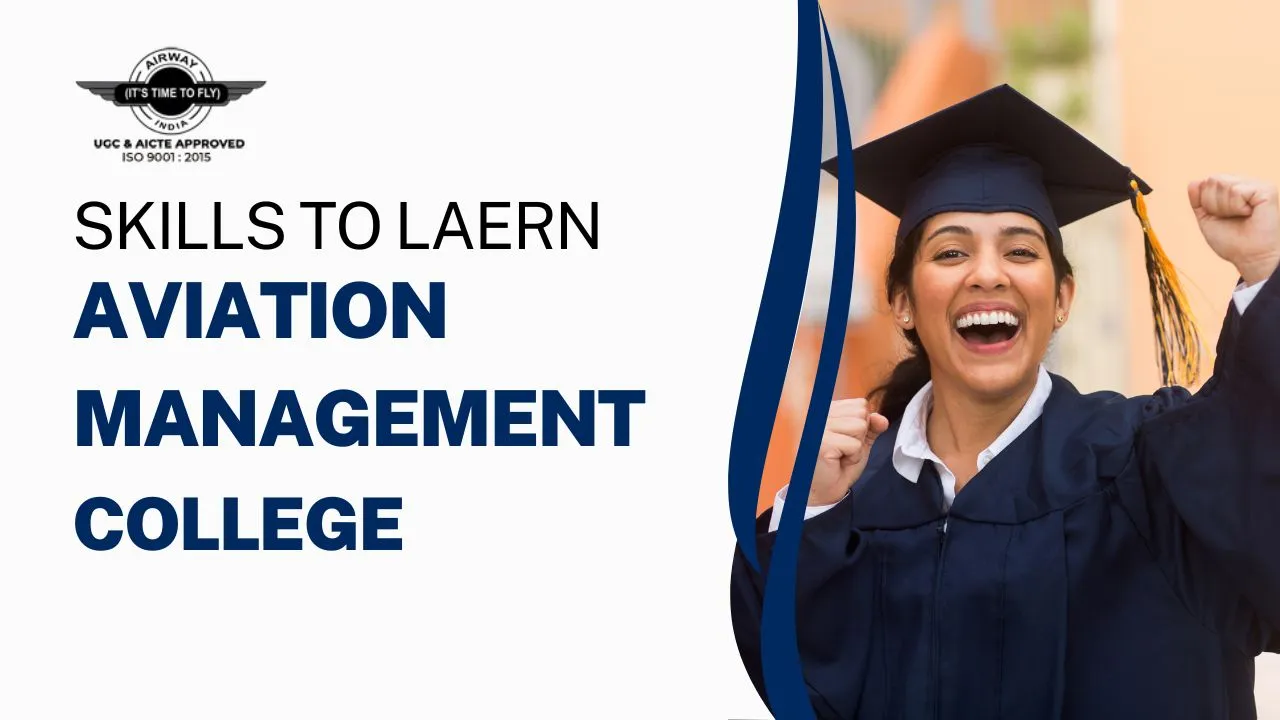
In India and around the world, aviation is one of the sectors with the quickest rate of growth. There is a greater need than ever for qualified aviation management professionals due to the rising demand for air travel. Attending an aviation management college gives you more than just a degree; it also gives you industry knowledge and critical management skills that prepare you for a variety of jobs in airports, airlines, and related fields.
The best skills taught in an aviation management college will be discussed in this blog, along with the reasons they are essential for your future employment in the aviation industry.
Interpersonal and Communication Skills
In aviation, effective communication is essential. Effective communication is essential for managing airline teams, interacting with passengers, and managing ground personnel. Programs for aviation management concentrate on:
Training in customer interactions
Expert business correspondence
Exercises for team coordination
Team management and leadership
Teamwork is essential to the aviation industry. Every department, from airport operations to cabin crew, functions as a cohesive whole. Students at aviation management colleges receive instruction in:
Managing a diverse workforce
Making decisions under duress
Resolving conflicts in work environments
Graduates who possess these management abilities are better equipped to assume industry leadership positions.
Knowledge of Aviation Operations and Business
Knowing how the aviation industry operates is one of the most crucial skills taught in an aviation management college. Students learn about:
Airline scheduling and operations
Logistics and management of airports
Regulations and adherence to aviation safety
This foundation guarantees that graduates are capable of managing practical business challenges in the aviation industry.
Critical Thinking and Problem-Solving
Every day, airports and airlines face unforeseen difficulties like operational disruptions and flight delays. Students at aviation colleges are taught to:
Examine issues rationally.
Put into practice prompt, useful solutions
Under pressure, maintain service quality
Because of this ability, aviation workers are very flexible.
Skills in Hospitality and Customer Service
Aviation is about giving passengers experiences, not just about flying. For this reason, universities stress:
Handling passengers and addressing grievances
Service management both on the ground and in flight
Global etiquette and cultural sensitivity
IT and Technical Expertise
The aviation sector is highly dependent on technology today. Students gain knowledge of:
Reservation systems for airlines
Tools and software for aviation
Data-driven decision-making in the aviation industry
In a competitive job market, graduates benefit from this technical exposure.
Management of Finances and Businesses
Managing aviation as a profitable enterprise is another aspect of aviation management, in addition to airlines. Colleges offer instruction in:
Budgeting and airline finance
Management of airport revenue
Students who possess this knowledge are better equipped to assume managerial responsibilities in the future.
Knowledge of the Global Industry
Given the global nature of the aviation industry, students are taught to comprehend:
Rules governing international aviation (ICAO, IATA)
Global airport and airline market trends
New professions in the aviation sector
IATA’s Aviation Industry Insights
Why These Skills Matter
Employers in the aviation sector seek candidates with leadership abilities, management skills, and a thorough understanding of the technical aspects of the work. Graduates who acquire these skills are more equipped to work for airlines, airports, aviation consultancies, and even multinational logistics firms.
Why Select the Appropriate Aviation Programme?
Choosing the correct programme guarantees you receive hands-on training, industry exposure, and career support, even though many institutions offer aviation-related courses.
All of the aforementioned skills are covered in our BBA in Aviation Management programme at Airway India, along with extra practical instruction, airport tours, and placement assistance. This guarantees that our students are highly employable in addition to being prepared for the industry.
Learn more about our Aviation Management BBA programme.
What skills are taught in an aviation management college?
Students learn leadership, communication, customer service, aviation operations, and management skills.
Why should I join an aviation management college?
Joining an aviation management college helps you develop industry-ready skills and prepares you for careers in airlines, airports, and aviation services.
Can an aviation management college improve my career prospects?
Can an aviation management college improve my career prospects?
Do aviation management colleges provide practical training?
Most Aviation Management Colleges include hands-on training, internships, and real-world exposure to enhance operational and management skills.
Conclusion
Attending an Aviation Management College aims to equip students with the skills that the aviation industry requires, not just a degree. These abilities prepare students for exciting careers in one of the most dynamic industries in the world, ranging from financial management and customer service to leadership and communication.
